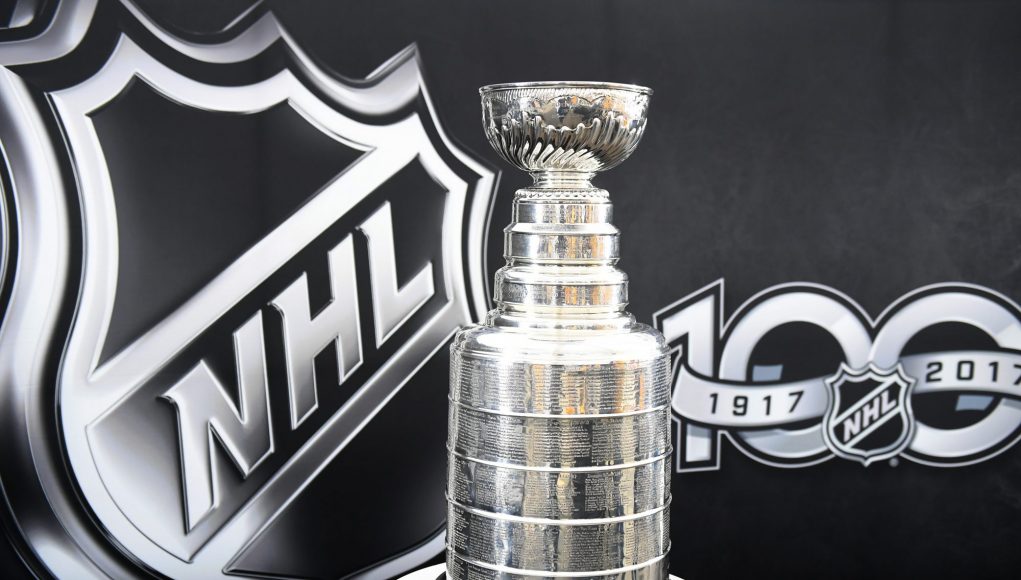ESNY presents a simple fix to the NHL Stanley Cup playoff format that could save big rivalries for later-round matchups.
Keep it simple, stupid. That’s the mantra the NHL and Gary Bettman should follow while formatting the Stanley Cup Playoffs.When the NHL restructured the playoff picture in 2013, large changes to divisions were made. They moved from six divisions down to four divisions, creating two in each the eastern and western conference. They insisted this would increase divisional rivalries, which, to be honest it, has.
The change has allowed teams within the same division to face off more frequently (29 times to be exact) while also allowing each NHL team to play in all 30 NHL arenas throughout the year. This has helped create rivalries among teams in the same division and allowed the league to be involved with every team around North America.
What about the Stanley Cup playoffs?
The new layout of the NHL playoffs does nothing to improve the playoff scenarios. In fact, in many cases, it ruins the potential for great matchups deep in the playoffs.
Take last year for example. The most anticipated matchups were spoiled in the first round. New York Rangers versus the Pittsburgh Penguins, first round. The Chicago Blackhawks against the St. Louis Blues, first round. The Washington Capitals facing the Philadelphia Flyers in the first round. You get the picture.
Oftentimes, the most entertaining matchup comes and goes so early in the marathon that is the Stanley Cup Playoffs. Last year, the Chicago and St. Louis matchup topped all other series. Creating such a great seven game series so early in the show negatively affects the teams, the league and, most importantly, the fans.
What about this year’s playoffs?
I realize it is still early in the season and there are many moving parts involved right now. Let’s say the playoffs started today, Feb. 27, 2017. These would be your Eastern Conference Matchups. (Current NHL Wild Card Standings.)
- Home Away
- Washington (1) Vs. Toronto (WC 2)
- Pittsburgh (2) Vs. Columbus (3)
- Montreal (1) Vs. New York Rangers (WC 1)
- Ottawa (2) Vs. Boston (3)
Pittsburgh squaring off against the Columbus Blue Jackets would likely be the best series in that bunch and maybe of the entire playoffs — all wasted in the first round. My simple solution would avoid great teams facing off too early.

In the current format, finishing first in your division can often be a punishment as opposed to a reward. Take Montreal this year. If they finish first in their division, they then have to play a New York Rangers team who is far better than anyone in their own division. To add to that, Montreal would have to play a New York Rangers team that accrued more points than them in the regular season, even playing in a tougher division! Even better (especially in the Rangers situation), a lower seed can have a much easier road to the Stanley Cup Final.
How is that even possible? C’mon, get it right.
Another point to mention is that the Montreal Canadiens would have home ice advantage because they won their division even considering the Blueshirts would have more points. Ridiculous.
Due to the Metropolitan Division’s hockey prowess, it forces the Pittsburgh Penguins to face the Columbus Blue Jackets in the first round. That’s the second and third best teams in the entire conference facing each other in the first round.
What’s wrong with this picture? You think Pittsburgh thinks they are being “rewarded” for playing so well and finishing second in the conference? Here, try taking on a Columbus team who played just as well as you in the regular season instead of a seventh seed, currently the Boston Bruins, who would likely be an easier matchup. Who comes up with this stuff?
The simple ‘Top 8 teams’ approach
When it comes to the Stanley Cup playoffs you want to see the best teams compete. Period. It’s really quite simple. Take the top eight teams in the eastern conference seed them one through eight. Then take the top eight teams in the western conference and seed them one through eight. Sounds really difficult, right? It really shouldn’t be my concern if six out of eight playoff teams in the East are from the Metropolitan division. Are they the best eight teams? That’s all I want. (
It really shouldn’t be my concern if six out of eight playoff teams in the East are from the Metropolitan division. Are they the best eight teams? That’s all I want. (Current NHL Conference Standings.)
This format would yield this opening round:
- Home Away
- Washington (1) Vs. Toronto(8)
- Pittsburgh (2) Vs. Boston (7)
- Columbus (3) Vs. Ottawa (6)
- NYR (4) Vs. Montreal (5)
Although some of the matchups would be the same, it eliminates some conflicts with the best series happening too early in the game. It also solves the problem of the best team possessing home-ice advantage, regardless of divisions and all that other noise. Let the best teams benefit from having an outstanding regular season.
What my proposed format eliminates is the best teams playing each other too early in the show. It also allows for Cinderella story eighth seeds to eliminate a top seed. With the Parody in the National Hockey League, this could be an exciting and realistic occurrence. Assume all the top seeds in a conference win their first round matchup. This leaves one playing four and two playing three in a later, more exciting round of the playoffs. That is what we want, not second round matchups playing out as boring.
Think about it. You want Alex Ovechkin playing Sidney Crosby in the Conference championship. You want Henrik Lundqvist going save for save against Sergei Bobrovsky (hopefully not, for our sakes) in a later round of the playoffs.
It’s simple. Take the top eight teams in the league and let them battle it out for the ultimate prize. Skip all this division crap and who plays whom. Keep it simple and in doing so make it more exciting.
Remember, the top eight formula was the way the NHL did things for over two decades, starting in the early 1990s when they ditched the classic names of Wales and Campbell while going to East and West.
Leave it to Bettman to make things complicated.
Check out the Real Talk Rangers Podcast on iTunes for the latest news on the NHL trade deadline. Follow us on Twitter @RealTalkRangers.













